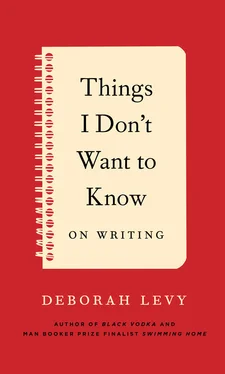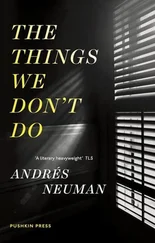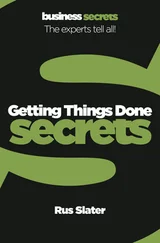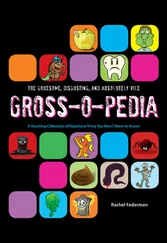By ten o’clock, when the last four of the plump, drunk and hedonistic bees had been wrapped in the sports page of The Times and dumped in the bin, I grabbed my black straw hat and waved goodbye to my mother so she could see my swollen fingers and suffer immense remorse.
‘You’ve got to clean the oven. That’s your second job.’
I tried to stare at her blankly but my eyes began to hurt. The effort it took to look cool and unfazed by everything was exhausting me. I walked down the stairs tripping over my denim flares, banged the front door with my smarting right hand which was hot and red from the stings and attempted to run in my new lime green platform shoes. As I passed the Chinese take away called HOLY and the dry cleaners called REUBANS, a pensioner dragging her beige plastic trolley in zigzags across the pavement said, ‘I like your funny hat.’
It was very very urgent that I got out of my life.
Inside the greasy spoon’s steamed up windows and haze of cigarette smoke, this sense of urgency accelerated. I had so little time. Time for what? I didn’t know but I was convinced there was another sort of life waiting for me and I had to work out what it was before I cleaned the oven. I hastily ordered eggs, beans, bacon and bubble and squeak, and then, realizing I didn’t have enough money for beans and bubble and squeak, decided to cancel the beans. Holding a mug of scalding tea in my unstung hand, I made my way past the builders and bus drivers towards a Formica table to begin my impersonation of the writer’s life. As soon as I sat down I reached for the white paper napkins that were kept in a glass alongside the salt, pepper, ketchup and brown sauce and started to write with a leaking blue biro. This is the word I wrote on my napkin:
ENGLAND
‘England’ was an exciting word to write. My mother had told me we were in exile and would one day return to the country of my birth. The idea that I was living in Exile and not in England terrified me. When I told my new friend Judy (who was born in Lewisham) that I didn’t really want to live in Exile, she said, ‘Yeah, I’d be scared shitless too.’ Judy wanted to look like Liza Minnelli in the film Cabaret and Liza was American. Judy’s father was a docker and he was as English as they come. He had died of cancer, something to do with asbestos in the cargo he landed, but Judy didn’t really know the whole story. On the weekends I painted her fingernails with sparkling green nail varnish to turn her in to Liza so she wouldn’t always have to be Judy whose father had died in England when she was twelve years old.
There were certain things about England that I still couldn’t quite grasp. One of these ungraspable things occurred right here in the café. The greasy spoon cook who was called Angie always gave me bacon that I considered raw. It was as if she put it on the hot plate to make it warm but not to actually cook it. This was very upsetting to me because the livid pink rasher on my plate made me think of the pig it had been sliced off. Somewhere in England there was a pig that was still alive running around with a chunk sliced off its side. I did not feel I could ask Angie to cook the bacon for longer because I did not live in England — I lived in Exile — and reckoned this was the way things were done in the country that was my host.
‘I can’t fall apart because I’ve never fallen together.’
This was something my teenage hero had written, or words that meant something like that — the man whose blank stare I practised in front of the mirror. I reckoned that every time Andy Warhola painted a tin of American soup it was his way of escaping from the flat brown fields of Eastern Europe where his parents were born. Every single tin of clam chowder got him nearer New York and away from living in Exile with his mother in Pittsburgh. Andy’s words were like a prayer I said every night before I went to sleep, and they rolled around my mind now as I sat in the greasy spoon piling up napkins to write England on. While I drank my mug of tea and watched the red London buses arrive and depart from the station, I thought about his collection of wigs. Apparently he stored them in boxes in his factory in New York and actually glued them to his head. I was interested in Andy because I reckoned I was a bit in disguise too. Judy wasn’t really in disguise as Liza (she wore velvet hot pants and fishnet tights to the Wimpy). Everyone could see what she was aiming for because they had seen Cabaret too, but I was not really sure what I was aiming for, especially as Andy was a man. She told me to focus on David Bowie, the star man who came from Beckenham, which was quite near Lewisham, but who now lived in exile on the planet Mars.
English people were kind. They called me pet and love and said sorry when I bumped into them. I was clumsy because I was sleepwalking through England and English people didn’t mind because they were sleep walking through England too. I reckoned this was because it got dark so early in winter. It was as if someone pulled the plug out of England at 4pm. Most curiously of all, when Joan next door tied her dog to the Wall’s ice cream stand outside the corner shop she spoke to her pet as if it could talk back.
‘Holly, say hello to the girl.’
There was always an embarrassing silence after she said that. But Joan wasn’t embarrassed. Even if her dog just scratched its ear or gazed at the chewing gum stuck on the pavement, she always had an excuse for why Holly didn’t actually talk. ‘Oh she’s in a funny mood today isn’t she?’
EnglAND
eNGLAND
ENgland
As well as the England doodles I also wrote sentences very fast on the white paper napkins. This action (scribbling) and also my costume (the black straw hat) were like being armed with an AK-47: the sort of rifle the newspapers always show third-world children holding instead of an ice cream with a flake bar stuck in the middle of it. As far as the builders sitting next to me were concerned, I was not quite there. I had written myself in to some other kind of status and they didn’t feel easy about chatting me up or asking me to pass the salt. I was out of it.
Writing made me feel wiser than I actually was. Wise and sad. That was what I thought writers should be. I was sad anyway, much sadder than the sentences I wrote. I was a sad girl impersonating a sad girl. My mother and father had just separated. Some of Dad’s clothes were still in the cupboard (jacket, shoes, a hanger full of ties) but his books had disappeared from the shelves. Worst of all, he had left his forlorn shaving brush and box of migraine tablets in the bath room cabinet. Love between Mom and Dad had gone wrong in England. Sam knew and I knew but there was nothing we could do about it. When love goes wrong, instead of seeing the front of things we saw the backs of things. Our parents always walking away from each other. Making a separate lonely space even when they sat together at the family table. Both of them staring into the middle distance. When love goes wrong everything goes wrong. Wrong enough for my father to knock on my bedroom door and tell me he was going to live somewhere else. He was wearing his English suit and he looked torn up, like the road outside.
When Angie carried the English breakfast to my table, she hovered too near me and for too long, pretending to re-arrange the bottle of brown sauce. I knew she wanted to ask me where I was from because she could see I was curious about things that were quite normal to her. The red double-decker buses. The men smoking Number 6 after they tucked into the pile of beans and chips on their plate. The fact I asked for tomato sauce and not ketchup or said robot instead of traffic lights and thenk yoo instead of thank you. Angie had given me a portion of beans even though I had cancelled them. English people were so kind it was unbelievable. I loved my new country and wanted to belong to it and be as English as Angie, though it occurred to me she might not be entirely English because I had heard her talking in Italian to the man who owned the greasy spoon.
Читать дальше












